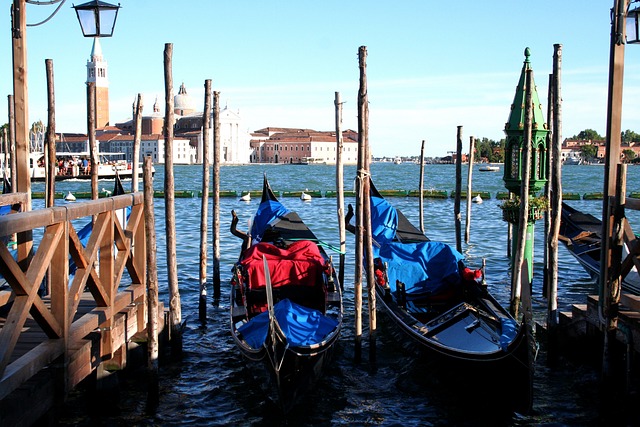Origin of the Patent System
The desire to avoid having my idea imitated is at the root of the patent system.
This desire is so fundamental that as far back as BC, there is a record of a confectioner who was granted by a king the exclusive right to manufacture a confection he had invented. Although not institutionalized, this is a patent (special permission) in the broadest meaning of the word. Including those not recorded, " patent-like concepts" may have existed in many parts of the world since ancient times.

World's oldest patent law
Patent law is enacted in Venice in the 15th century. It is said to be the oldest patent law in the world. Japan was in the period of the Onin War (the great civil war that led to the collapse of the medieval order in Japan). The Venetian Patent Law shows the spirit of the modern patent system early on: new inventions are patentable, infringers are punishable, patents are registered with public authorities, and protection is limited to a certain period of time. It is said that the Venetian Patent Law aimed to make engineers want to stay in Venice, or even come to Venice, by guaranteeing the benefits of their inventions to the state.
However, the patent system was not yet a major institution at this time. Venice lost its trade interests, partly due to Dutch innovations in shipbuilding technology, and gradually declined.
Industrial Revolution and Patent Law
The modern patent system developed in 17th century England, where in 1623 the English Parliament enacted the Statute of Monopolies (Patent Act). The Statute of Monopolies granted inventions and new businesses a monopoly (undisturbed by royal authority) for a certain period of time. Nevertheless, it is said that even 100 years after the enactment of the law, fewer than 1,000 patents had been granted.
This Statute of Monopolies came to have a synergistic effect with the Industrial Revolution that began in the mid-18th century. The cornerstone of industry is "a system to protect investment". The patent system is one such example. I believe that the patent system became a major system largely because of its achievements in igniting the Industrial Revolution.
In the 18th century, Washington himself spearheaded the establishment of the patent system in the United States from the very beginning of the country's founding. Jefferson was actually involved in the establishment of the system. Jefferson's words, "Every invention under the sun shall be protected by a patent," expresses the basic spirit of the American patent system.
History of the Patent System in Japan
In 1721, Tokugawa Yoshimune (the 8th shogun) banned inventions. For conservative Yoshimune, it was undesirable for society to change through invention. Under the Tokugawa shogunate, which operated by the principle of precedent, technology finally did not become an "industry" but continued to remain in the realm of "craftsmanship".
From the end of the Edo period to the Meiji Restoration, Yukichi Fukuzawa, a famous thinker who greatly influenced people, introduced the patent system to Japan in his book "Western Affairs". Yukichi Fukuzawa stated that a patent system would encourage inventions and contribute to the development of Japan. In 1885, the Patent Law was enacted.
In 2001, approximately 440,000 patent applications (domestic applications) were filed, which was the highest in the world at that time. After that, the number of patent applications gradually decreased, and in 2015, the number of applications was about 300,000/year. As for the reason for the decrease in the number of patent applications, there is a negative opinion that Japan's technological capability has declined, while there is also a positive opinion that Japanese companies have become strategically selective in the patent applications they file.
Patent Strength
The patent system is controversial.
Some criticize that the proliferation of patent rights has stifled business activity. On the other hand, without the patent system, many technologies might be kept secret, kept dead, or lost. Many old technologies cannot be reproduced by modern science.
Some technologies, such as software and biotechnology, were not envisioned when the patent system was established. The definition of the word "technology" is also not clear. There are ideas that we are not sure if they should be called technology, art, or rules.
Inadvertent infringement of even a single patent can result in an injunction against shipment of the product. That's how powerful (in theory) patents are, but they may be a little too powerful. You may suffer for many years from just one other company's patent. But that is why it has the power to protect your business.
The strength of patents varies from country to country and continues to fluctuate with the times. The patent system is not a perfect system and can cause many conflicts. However, even if the patent system is imperfect, I believe that the development of society will be enhanced if we can activate knowledge and, by extension, the game of business, by making full use of the tool called a patent.